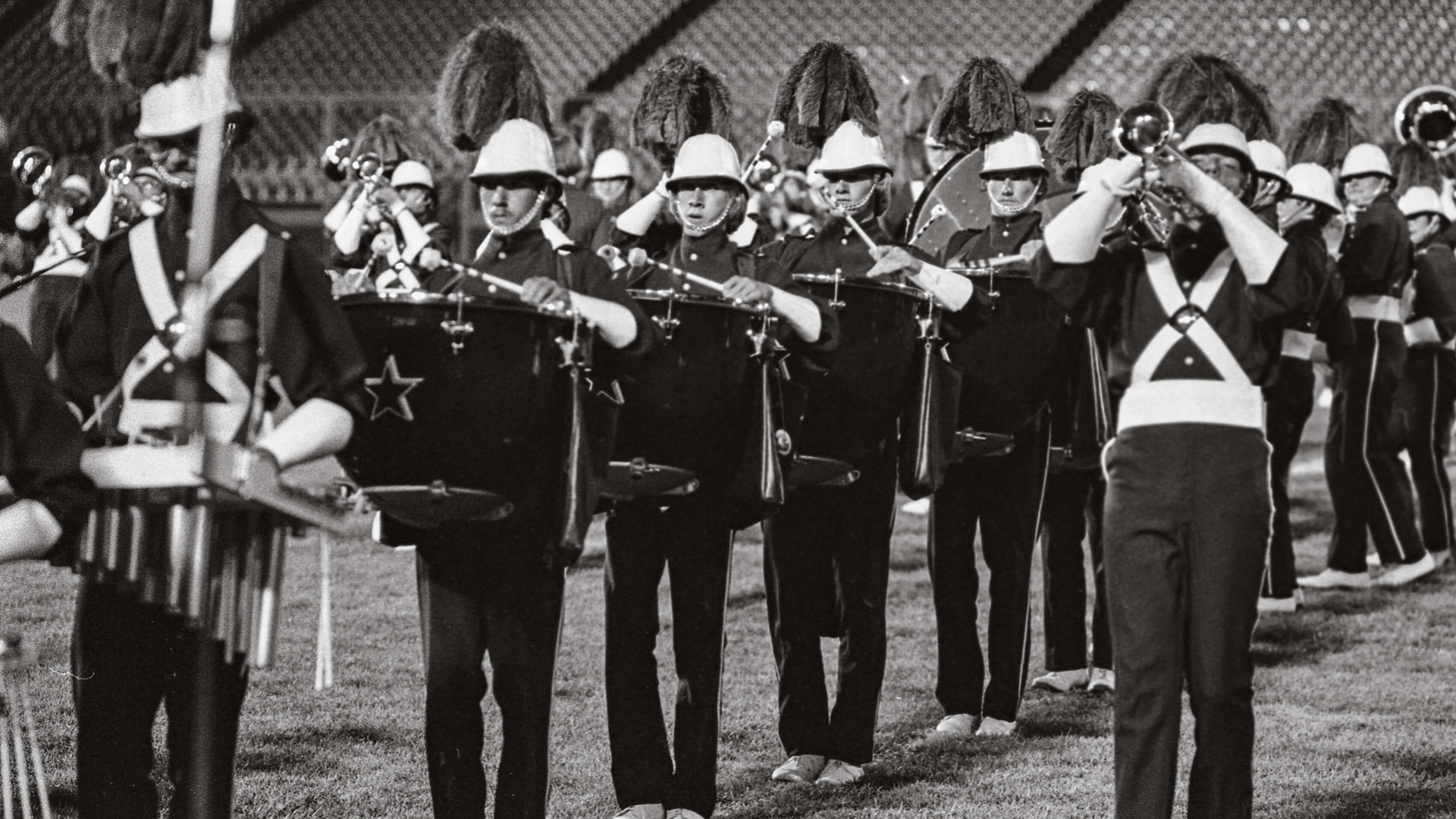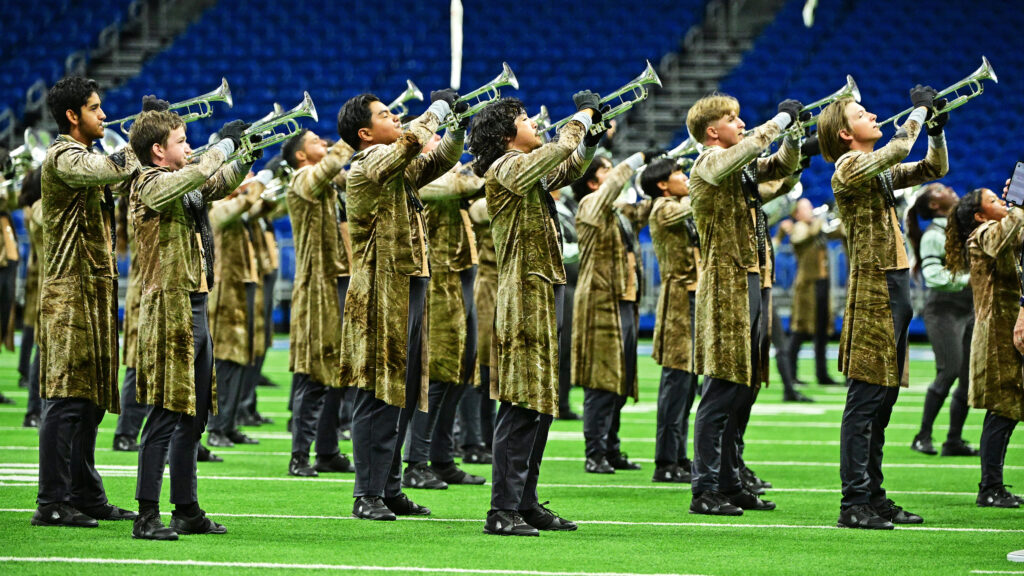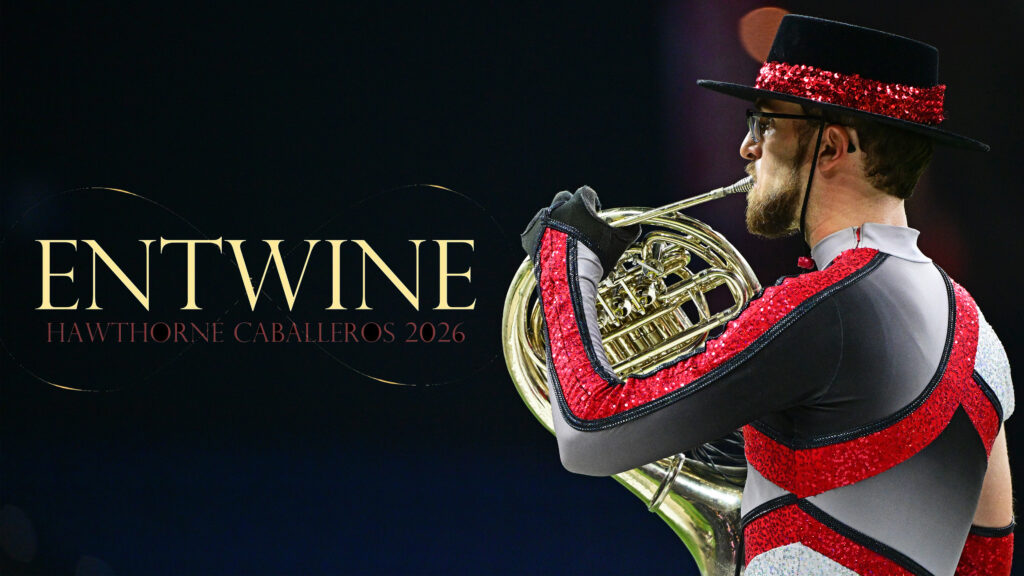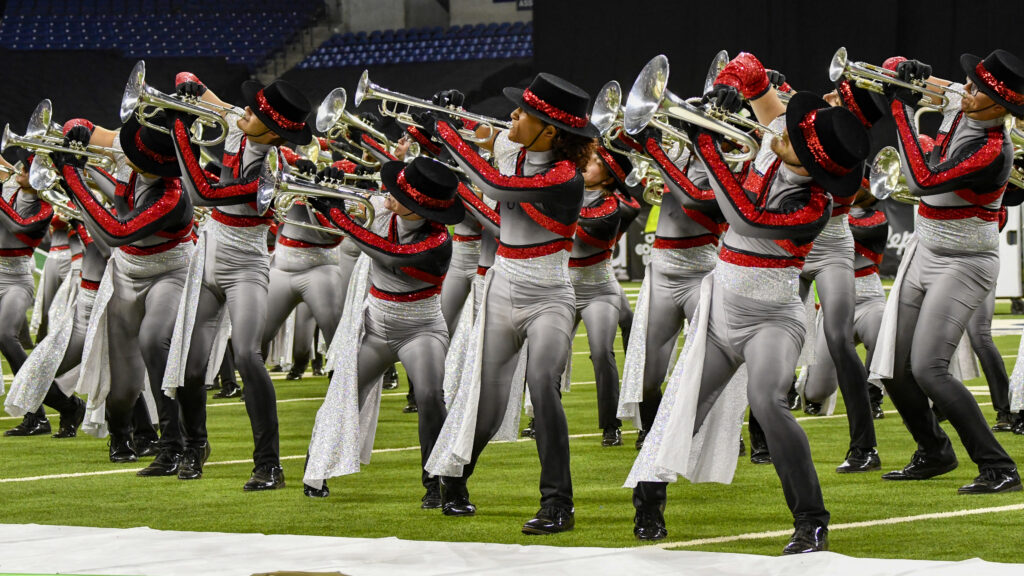After two years in the Midwest and three years in the East, the Drum Corps International World Championships headed to Colorado in 1977.
The Prelims took place at the University of Colorado in Boulder, and the Finals took place on Friday at Denver’s Mile High Stadium, which has since been torn down and was next to the current NFL stadium that hosted the 2004 DCI World Championships. The 1977 Finals were held on a Friday because the American Legion had already reserved the stadium for their own national championship event on the following day.
Blue Devils won their second title in ‘77, achieving perfect scores in the brass effect and percussion effect judging captions. They were also just a tenth of a point away from a perfect score in visual effect.
Among the firsts in 1977 was the entry of Crossmen into the Finals, the appearance of a parachute that swallowed the entire Seneca Optimists, and Garfield Cadets’ vocalization of “Amen” at the end of the their closing piece, “Jesus Christ Superstar.” The New Jersey corps managed to pull that off because although singing wasn’t illegal at the time, as it was the following year by DCI rules, there was no clear rule banning it in 1977.

“Shema” is the basic principle of Jewish belief, a prayer recited twice a day, proclaiming the faith of their people in God. “Hatikvah (The Hope)” was the unofficial national anthem of Israel until it became official in 2004. The words were written in 1878 by a Jewish poet in what today is Ukraine with the music derived from a 17th Century Italian song that became popular throughout much of Europe.
The medley ended with “Hava Nagila,” perhaps the best-known Jewish melody sung in Hebrew. Literally meaning, “Let us rejoice,” the melody was derived from a Ukrainian folk song. During this movement, the color guard members laid their flags and rifles on the ground in the shape of a six-pointed Star of David and performed a rendition of a traditional Jewish celebratory circle dance.

Next the Blue Stars turned to “The Planets,” a seven-movement orchestral suite that English composer Gustav Holst started writing in 1914. It was premiered in England during the last weeks of World War I. The suite was originally scored as a piano duet, except for “Neptune,” which was originally written for organ. The corps performed the famed “Jupiter, the Bringer of Jollity” and “Uranus, the Magician,” the latter starting with a percussion feature, ending the work with the finale from “Jupiter.”
The peppy “Backwoods Sidemen” followed the Holst segments, which came off Buddy Rich’s “The Roar of ’74” big band studio album. It’s the same album that brought drum corps “Nutville” and “Waltz of the Mushroom Hunters.” Opening with a rather challenging mellophone duet, the piece ended with the color guard rifle bearers opening and closing red and white umbrellas to the repeating crescendos in the music.
The corps’ closing piece was Charles Smalls’ “If You Believe” from “The Wiz,” a smash-hit 1974 musical that updated the classic story of “The Wizard of Oz” story, setting it in a contemporary environment. The corps’ rendition came a year before the musical was made into a movie, the song memorably interpreted in the film by Lena Horne. During the climax of the piece, the corps formed a five-point star, which has often been seen in Blue Stars shows.

As it had been for the previous two years, Bob James’ “Soulero” provided an extra tag ending to the show. The work, off his 1974 debut solo album, “One,” was inspired by the famed “Bolero” by Maurice Ravel. “One” is considered by jazz historians to be one of the most important albums in the early days of smooth jazz.
By 1977, Blue Stars and Santa Clara Vanguard were the only two corps to advance into every DCI World Championship Finals. 1977 finalists Madison Scouts, Kilties, Cavaliers and 27th Lancers had each fallen out of the Top 12 once and Bridgemen didn’t even go to the 1975 show after falling to 26th place in 1974. Garfield Cadets missed four of the first five years of DCI, and the other five corps in the 1977 Finals didn’t make the Top 12 until 1974 and 1976.
In 1980, Blue Stars would slip to 13th, and after many successful years in Division II & III competition, wouldn’t return to the Finals again until 2008.
1977 Overview

Michael Boo was a member of the Cavaliers from 1975-1977. He wrote about the drum corps activity for more than 35 years while serving as a staff writer for various Drum Corps International projects. During his lifetime Boo wrote for numerous other publications including an honors-winning book on the history of figure skating. He also was an accomplished composer. Boo passed away in 2020 and was inducted into the DCI Hall of Fame posthumously in 2021.





